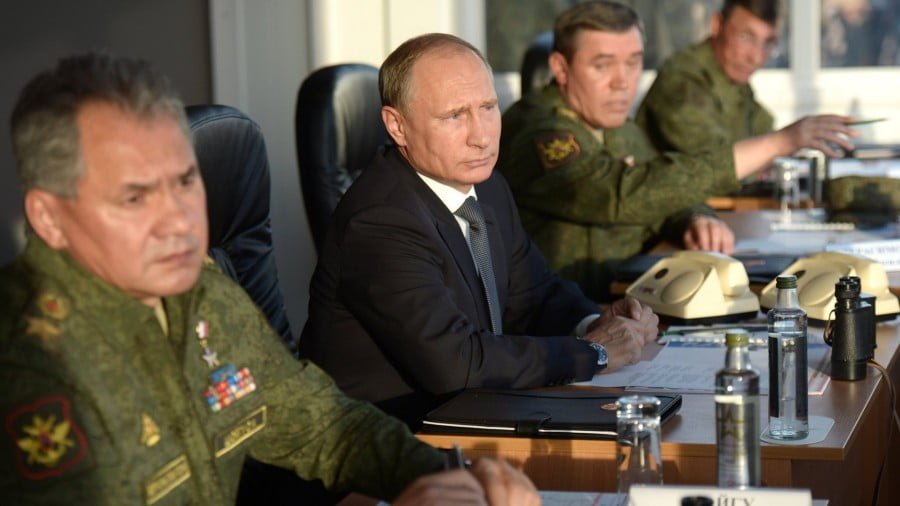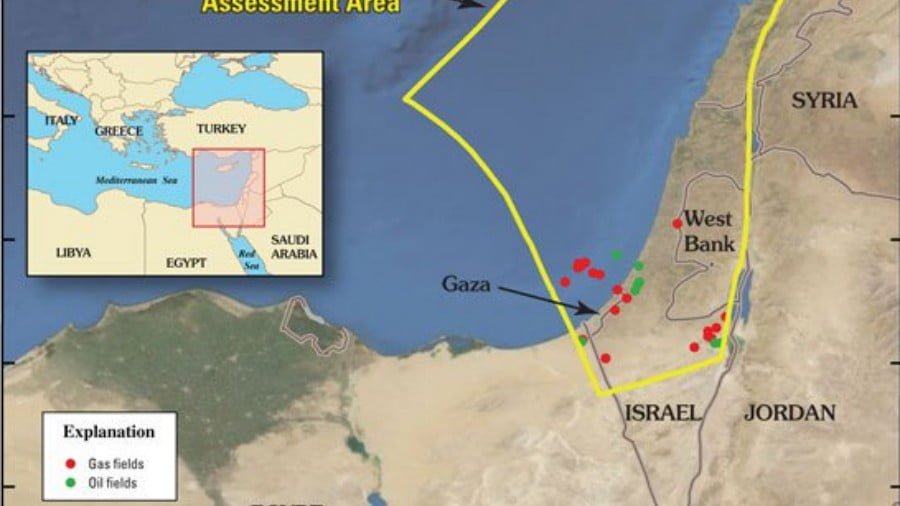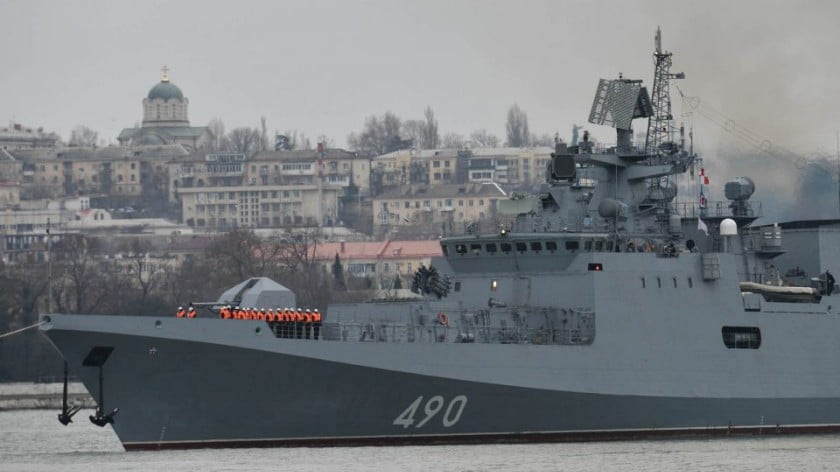Iran Has Been ‘Resanctioned’ but Do Sanctions Actually Work?
The Trump administration is seeking international support to turn back the clock on sanctions against Iran erasing the negotiations made during the Obama administration. So far the “international community” does not seem too thrilled by the idea, especially certain members of the UN Security Council who themselves have been sanctioned by Washington in the past. Trump can demand all he wants from the UN but until sanctions are lifted against Russia, and the “Trade War” against China stops they are unlikely to put pressure on an economic partner for the sake of Washington’s feelings.
Iran has been under the American heel since their 1979 revolution, meaning that for 40+ years the Iranians have been a major Soft Power target for the might of a Superpower that turned Hyperpower in 1991. And yet the unique semi-Theocratic Iranian system is still somehow standing. Perhaps they did indeed pick the right religion. The United States is 40 times larger than Iran GDP-wise and is by far the most influential nation on Earth. So maybe targeted economic punishments are just not that effective? If so then why does the United States continue to use this Soft Power bayonet in the machine gun era?
Do Sanctions Work Historically for Washington?
There have been many issuances of economic punishments handed out over the years. These range from targeted sanctions against individuals to total embargoes on trade with a foreign nation that calls for allies to do the same. In order to keep this article from becoming a terminology debate let’s just refer to these instances as sanctions/embargoes or “S/E”.
The Cold War was certainly a S/E heavy period in history. Whereas the Soviets were very blunt in displaying global division with the Berlin Wall and Travel Controls for Soviet citizens, Washington on the other hand quietly built up many invisible economic barriers to keep the Communists from rising. Everyone believed Soviet products to be inherently inferior but the Jackson-Vanik Amendment certainly helped prove that to be “true” as none of them ever made it to American store shelves – the “invisible” hand of the free market in action.
But in terms of sanctions the Cold War was not just about the battle of Capitalism vs. Communism but it seemed that S/E were issued to any nation with a systemic difference from the Western status quo. This means the real battle, at least when we look at S/E seemed to have been the American System vs. Anything Not Exactly Like it.

Apartheid based nations and Iran’s Islamic Republic, despite being more Capitalist than not, were just as unacceptable as the Commies and became big targets of not just the United States but the West in general. However, it is important to note that sanctions were far from a guarantee of success in sparking Regime Change. Many of the countries that have been punished for decades by S/E have not had any sort of major systemic political change. Furthermore, it is very hard to prove just how effective sanctions were in “successful operations”. The Soviet Union was brought down, but was it mostly, partially, or incidentally due to sanctions?
One could argue that the successes of S/E against Apartheid regimes in Africa definitively worked. But then again these were economically pathetic regions that stood on a very fragile podium. Trying to maintain a “Spartan” style society with a tiny ethnic minority ruling over the masses is very difficult when the “International Community” wants you to fail. So perhaps if your economy is roach sized in the first place S/E can guarantee stamping it out. This is not a particularly strong proof of concept for S/E.
When we get to S/E levied after the end of the Cold War then the success rate seems to be much higher without a big Soviet brother to help out those in need and Russia itself being weakened to the breaking point. But here we see a big logic shift as some of the nations on this list were systemically not particularly different from the West. In fact up until the recent 2020 Russian Constitutional Referendum the nation’s founding document and structure looked like a Western European constitution that got copied into Google Translate. Systemic differences were no longer the key issue after the 1990s.
The real uniting factor of these nations is that they supposedly at some point “violated Human Rights” which is the Original Sin of modern day politics. Since every nation on Earth is guilty of this on some level, selective enforcement is always on the table. So the post Cold War S/E chart is a list of those who engaged in bad behavior in the opinion of Washington.

One other key difference is that some of these sanctioned nations were later directly invaded/bombed by the U.S./NATO which yet again makes it hard to say for sure if it was really the sanctions that did the trick. S/E certainly does have an effect on the economy of the victim nation. But bombing a nation into a state of total chaos is sure better for Regime Change. So why does Washington continue to play this game?
Why are uppity nations still being Sanctioned?
Given the history of S/E and the debatability of their effectiveness one can surmise the following list of reasons why they continue to be used to this day and are viewed as a highly viable strategy…
1. S/E are bureaucratically easy to use.
Simple broad sanctions and targeted sanctions at individuals can be done by executive order in some circumstances. For Washington this is a light speed tactic as it requires a single very important signature.
2. S/E provide the illusion of achievement.
Politicians need to prove that they are doing something and sanctions are an easy way to pander to certain groups. Even if Trump completely fails to put pressure on Iran he has achieved hardcore pandering for Israel and certain parts of the American electorate who are obsessed with appeasing the Holy Land.Punishing Apartheid based nations probably made certain European politicians feel very good about themselves as did punishing the Evil Russians for taking back territory that has been deep in their nation’s culture since before America even existed. When it comes to politics the most important thing for your popularity is to seem successful, even if you have achieved nothing.
3. It scares the elite of a given nation into submission.
Washington can seize a Chinese businessman’s real estate assets in Seattle, Vancouver or Monaco, but good luck trying to grab his apartments in Shenzhen. The more the elite of a nation is tied to the West the more Washington can threaten them personally. If the elite of a nation sees better guarantees for their future coming from inside the Beltway, then revolution could certainly be on the horizon.
Making the elite feel a lack of security can be very effective and conversely this is why nations like Russia and China need to keep their elite bound and at home. If they had a lot more to lose from angering Moscow and Beijing (respectively) then they will remain “loyal” as part of self preservation. If the real target of the sanctions is the elite of a given nation then they work far better than any simple propaganda. No one wants to lose their mansion over petty things like “patriotism”.
4. The world has needed America a lot more than America has needed the world.
In order to throw around S/E the “attacking” nation needs to be vastly less dependent on the other. As long as everyone needs America then, America can use access to itself as a big bargaining chip. Thus, weaker nations really have no means of retaliation. Russia was able to levy counter sanctions that successfully hurt U.S. meat shield satellites like Poland and Finland, which is vastly more than what Iran could do, but this is still only a glancing blow. Russia has thus far not been able to really hit Washington hard with any sanctions, because for now the USA needs very little from Moscow.
Conversely, if America really is in decline, then the threat of sanctions will cool off year-by-year until they become completely nonviable. This justifies any moves made by the Russians and Chinese to provide more “Multipolarity” in terms of international institutions and infrastructure. If the vast power disparity on our planet is broken then S/E will fade into history.







